
Bob Bailey & Virginia Gregg
Welcome to the Great Detectives of Old Time Radio! A podcast featuring the best vintage detective radio programs. Each week from Monday through Saturday, we feature six of Old Time Radio's great detective series from the beginning of the show to its very last episode. And as a bonus, twice a month we also post a public domain movie or TV mystery or detective show video.
Along the way, I'll provide you my commentary and offer you opportunities to interact.
Subscribe to the show by clicking your favorite podcatcher in the sidebar.
And don't forget to follow me on Twitter and become a fan on Facebook.
- Your host, Adam Graham
Listen to "The Great Detectives of Old Time Radio" on Spreaker.
Currently Featuring
YOURS TRULY, JOHNNY DOLLAR THE FALCON DANGEROUS ASSIGNMENT DRAGNET MR. CHAMELEON ELLERY QUEEN… and more!
View all shows
Check out our other shows:
Recent Posts
Christmas Detectives, Let George Do It, Mutual, Podcast
EP0563: Let George Do It: Santa Claus In Glass
by Yours Truly Johnny Blogger • 0 Comments
Podcast: Play in new window | Download
Subscribe: Apple Podcasts | Spotify | Amazon Music | iHeartRadio | Email | TuneIn | RSS
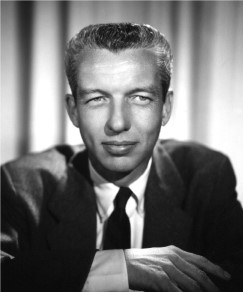
George pledges to stay out of mysteries on Christmas day and we know how that’ll turn out.
Original Air Date: December 25, 1950
Take our listener survey…http://survey.greatdetectives.net
Cast your vote for the show on podcast alley…. http://podcastalley.greatdetectives.net
Become one of our friends on Facebook… http://www.facebook.com/radiodetectives
Call 208-991-4783 to leave a voicemail.
Click here to download, click here to add this podcast to your Itunes, click here to subscribe to this podcast on Zune, click here to subscribe to this feed using any other feed reader.
Candy Matson, Christmas Detectives, Lady Sleuths, Podcast
EP0562: Candy Matson: Jack Frost
by Yours Truly Johnny Blogger • 0 Comments
Podcast: Play in new window | Download
Subscribe: Apple Podcasts | Spotify | Amazon Music | iHeartRadio | Email | TuneIn | RSS
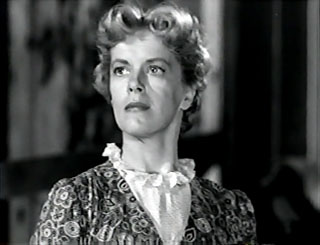
Santa’s helper, Jack Frost, turns up missing and at the request of a friend, Candy gets Rembrandt to take the job. However, Candy has concerns when the missing Jack Frost turns up murdered.
Original Air Date: December 10, 1949
Take our listener survey…http://survey.greatdetectives.net
Become one of our friends on Facebook…http://facebook.com/radiodetectives
Follow us on http://www.twitter.com/radiodetectives
Vote for the show on Podcast Alley….http://podcastalley.greatdetectives.net
Click here to download, click here to add this podcast to your Itunes, click here to subscribe to this podcast on Zune, click here to subscribe to this feed using any other feed reader.
Barrie Craig, NBC, Podcast
EP0561: Barrie Craig: The Thirteenth Guest
by Yours Truly Johnny Blogger • 0 Comments
Podcast: Play in new window | Download
Subscribe: Apple Podcasts | Spotify | Amazon Music | iHeartRadio | Email | TuneIn | RSS
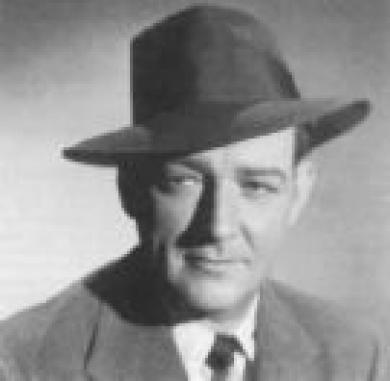
Barrie Craig is assigned as a bodyguard at a party and finds himself investigating a murder.
Original Air Date: August 9, 1953
Become one of our friends on Facebook… http://www.facebook.com/radiodetectives
Take the listener survey at http://survey.greatdetectives.net
Give us a call 208-991-4783
Follow us on Twitter @radiodetectives
Click here to download, click here to add this podcast to your Itunes, click here to subscribe to this podcast on Zune, click here to subscribe to this feed using any other feed reader.
Golden Age Article
Radio Review: Life with Luigi
by Yours Truly Johnny Blogger • 7 Comments
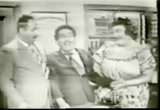
(Caption: Pasquale (Alan Reed), Luigi (J. Carrol Naish), and Rosa (Jody Gilbert) from the 1952 TV show.)
Life with Luigi aired on CBS over radio from 1948-52 and in two separate incarnations over television in 1952 and 1953. 138 radio episodes (with some duplicates thrown in) are available on the Internet Archive.
It was a radio sitcom with heart that featured J. Carroll Naish as Luigi Basco, an Italian who was sponsored by Pasquale (Alan Reed) who brought Luigi to the country in hopes of marrying him off to his overweight daughter Rosa (Jody Gilbert) but is disappointed that Luigi doesn’t want to marry her because she’s too fat. Pasquale will do anything to get Luigi to marry Rosa and most of the plots focus on this point.
In addition to this, Luigi is a night school student and his fellow pupil Schultz (Hans Conreid) is a key supporting character who had some of the best line of the show. Others in the class included Horowitz (Joe Forte) and Olsen (Ken Peters), and the teacher, Miss Spaulding (Mary Shipp.)
This outstanding cast (in particular Reed. Conreid, and Naish) along with support from such radio pros as Gerald Mohr, Frank Lovejoy, Jim Backus, and Frank Nelson made the show appealing despite some very flawed writing.
Most episodes of Life with Luigi (particularly the early ones) had the same basic plot:
1) Luigi has a problem.
2) Pasquale offers to help Luigi out but Luigi balks when he finds out that to get Pasquale’s help he has to marry Rosa.
3) Pasquale learns of a better way to solve the problem from his night school class.
4) Pasquale get’s Luigi all “Ferschimmeled” with concerns that he violated an obscure government act that will threaten Luigi with imprisonment or deportation. Failing that, Pasquale sets Luigi up to get in trouble.
5) Luigi gets in trouble or imagines he’s getting into trouble. Pasquale repeats his offer to Luigi and Luigi agrees reluctantly.
6) Before Pasquale can really help, the truth comes out and Luigi excuses himself and refuses to marry Rosa.
Even the lines had formulas and running gags were their stock and trade.
Schultz would deliver advise Luigi. “Be like me, always laughing, always smiling.” Then a yelp of pain. “Oh, my rheumatism is killing me.”
Pasquale’s greeting for Luigi was also standard, “Luigi, my friend. Hello, Luigi. ‘Allo, ‘Allo.”
Others, while not repeating word for word followed a similar pattern. For example, when Luigi is still troubled after talking to his class and seeking advise elsewhere, Pasquale will upbraid Luigi for seeking elsewhere rather than coming to him:
Pasquale: You always runnin’ around like a little squirrel looking for nuts. And all the time, right over here is the big nut.
Luigi: You so right, Pasquale. You’re the biggest nut I know.
(Pause)
Pasquale: It’s a funny thing. When you say it, it comes out different.
The show’s stand out performances were key. Pasquale’s mangled English, taken with Schultz’s class clown character, and the innocent confusion of Luigi made the characters likable in spite of us being able to predict exactly what was going to happen.
Life with Luigi was also more than just a sitcom though. The story was enlivened with a sense of patriotism and optimism about America. While other characters such as Pasquale and (to a lesser extent) Schultz were cynical about people and institutions in America. Yet, Luigi’s faith in America and Americans, while often shaken by careless reactions often would inspire the best in people, whether it was helping the anti-Communist Crusade for Freedom or inviting strangers for Thanksgiving, or delivering a patriotic, Luigi had many heart-warming moments.
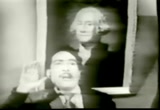 Life with Luigi was a tribute to the depth of love that most immigrants to America and a gentle nudge to native born American to understand and preserve what they had. Early episodes of Life with Luigi overplayed this. with one promo boasting that as a new immigrant off the boat from Italy, Luigi knew more about this country’ s government and freedoms than most Americans.
Life with Luigi was a tribute to the depth of love that most immigrants to America and a gentle nudge to native born American to understand and preserve what they had. Early episodes of Life with Luigi overplayed this. with one promo boasting that as a new immigrant off the boat from Italy, Luigi knew more about this country’ s government and freedoms than most Americans.
The show dialed back Luigi’s knowledge level after the first dozen or so episodes, so that he was still learning about American History rather than having a firm and resolute grasp on it. The producers also wisely dropped the character of young Jimmy, the general manager of Luigi’s antique shop and Luigi’s apparent ward. People who have been in America less than a year don’t have wards.
The show also preached tolerance and brotherhood. Luigi’s class is a United Nations of immigrants (indeed, Schultz forms an ad hoc United Nations as a secret club) with the class recognized as the delegates from Italy, Israel, Austria, and Sweden. Luigi took a risk and when writing a play for his school, included a role for a black student as Crispus Attucks. In another, Luigi lost a job as a salesman because he refused to change his name to something more “American.” Luigi was informed that Basco was a fine American name.
As a comedy, Life with Luigi was a mixed bag including both laugh out loud moments as well as some turns that seem more stupid than funny. However, the show worked in touching the hearts of listeners and inspiring them to be better citizens and better neighbors and the show is still having an impact until this day. The Daily Herald in Chicago ran a profile of a retired teacher known as St. Patricia who now dedicates her life to teaching people from 19 different countries English:
But to get to the root of Bernhold’s appreciation for teaching English, she goes back nearly 60 years. As a teen in San Francisco, Bernhold fell in love with the radio show, “Life with Luigi.”
The show followed Italian immigrant Luigi Basco to his English classes, where a “very patient” teacher helped the students through their struggles.
Bernhold now has to exhibit that same patience and she does so regularly.
Life with Luigi would have a less than inspiring run on television. It premiered in 1952 with the episode, “Citizenship,” which is available at the Internet Archive. The show used most of the original cast except for Luigi’s classmates. Particularly noteworthy is the absence of Hans Conreid as Schultz. (Update: A second episode was added to the archive.)
The show was cancelled and recast. There are many rumors why this happened. The most popular seems to be that the series was cancelled because viewers found the ethnic stereotypes on the show offensive. This is, to be honest, internet junk borrowing the story of another TV shows downfall. Another CBS show, Amos ‘N Andy, which was cancelled over objections from the NAACP in 1955. There were no similar objections to Life with Luigi. Indeed, two of the most notable and youngest Italian entertainers of the era appeared on the program in the form of Mario Lanza and Frank Sinatra. While the show might seem politically incorrect today, it’s doubtful that anyone in the 1950s viewed the good-natured show as racially offensive given its overall focus on ethnic tolerance and understanding.
The television program was pulled over concern by sponsors that the show was subversive. Throughout its radio run, the show poked gentle fun at corporate power structures and bureaucracies that Luigi would have to navigate to solve problems until coming on a real human being. General Foods cancelled their sponsorship of Life with Luigi because he’d offended stockbrokers and utility companies. The show was canceled despite 40% of the televisions in the United States being tuned to it.
J. Carrol Naish was a Taft Republican, the most conservative wing of the GOP, and said said the idea he would allow anything subversive on the show was ridiculous. Still, the program was cancelled. They later wanted him to return, but he opted not to, choosing to focus on playing other roles.
The show was recast completely with Vito Scotti taking over the role of Luigi and making Luigi a waiter for Pasquale rather than the owner of his own antique shop (episode available at archive.org) . The radical transformation doomed the show and it didn’t last past the Summer of 1953.
Thirty years later, the 1980s would see another show with an optimistic America-loving immigrant featured in Perfect Strangers starring Bronson Pichot as Balki Bartokomous, another immigrant living in Chicago learning about the American way of life and teaching others lessons in timeless values by example. As sensibilities had changed, they made Balki an immigrant from a fictional country which short-circuited any ethnic stereotypes or allegations thereof.
Life with Luigi is not remembered much these days, but even more than 60 years after it first hit the air, the episodes remain a treat for those who could use an escape from cynicism and a chance to understand America better.
If you enjoyed this post, you can have new posts about Detective stories and the golden age of radio and television delivered automatically to your Kindle.
Golden Age Article, Nero Wolfe
Book Review: A Right to Die
by Yours Truly Johnny Blogger • 0 Comments
Nero Wolfe encountered Paul Whipple in 1938’s Too Many Cooks as a black waiter in West Virginia studying anthropology. Wolfe obtained Whipple’s help in solving the murder of a famous chef.
Twenty-four years laters, Whipple calls in his marker to get a favor from Wolfe. Now an Assistant Professor of Anthropology, he shows up unannounced at the Brownstone and quotes Wolfe’s remarks on racial equality with Wolfe stating, “The ideal human agreement is one in which distinctions of race and color and religion are totally disregarded.”
The professor quotes this speech of Wolfe’s and then, with no sense of irony whatsoever, asks Wolfe to investigate his son’s fiancee’ to find out what’s wrong with her as she’s a white woman wanting to marry his son. Wolfe objects to the investigation, but at last agrees to do the job in order to repay the debt he owes to Whiple for helping him solve the case.
Archie meets the woman in question and finds her to be an eager and earnest civil rights campaigner who also believes strongly in the potential of Whipple’s son. She tells Lily Rohan that she thinks he’ll be the first black Mayor of New York. Convinced their wasting their time, Wolfe still sends Archie out to he young woman’s hometown in the Midwest for a thorough check. All Archie finds out is that a suitor took his own life on her doorstep. Archie’s about ready to give up the investigation when the decision before him when the young woman is found murdered.
However Archie and Wolfe aren’t out of it for long. When the younger Whipple is charged with the murder, Wolfe sets out to serve justice and repay his decades old dobt to the young man’s father.
There are many questions that are raised by A Right to Die. For practical plot purposes, I wonder whether every key witness in a Nero Wolfe case is entitled to one free case from Nero Wolfe. The book also gloss es over the agelessness of Nero Wolfe and Archie Goodwin as Nero and Archie haven’t aged a day while the young waiter is old enough to have an adult son working at a Civil Rights organization.
The book also serves us a large dodse of social commentary. Stout and Wolfe both supported the civil rights movement, but Stout raises several issues in the book including reverse racism, prejudice, and perils of race consciousness. The book actually presents an interesting contrast on the latter issue. Wolfe treats blacks in the story the same as white and is accused of racism. On the other hand, Wolfe doesn’t believe the younger Whipple is going to be charged due to flimsy evidence and motive. The Whipples are certain that he will be charged, but Wolfe reaffirms his belief by stating that while New York City isn’t perfect, “it’s not Dixie.” Wolfe is proven wrong when Whipple is charged.
Stout also decided to be even more avant garde and have Archie fall in love with a black woman. However, Archie never approaches the woman romantically and never says anything outside of his official capacity. And the woman barely says anything, and nothing noteworthy the entire book. While, I know that inter-racial dating was really not done as a rule in 1964, what Stout manages to do is to create the most shallow and one-sided of the many “romances” of Archie Goodwin.
The second murder was also a bit telegraphed. The victim called Archie and mentioned that he suspected about the murder and would give them a call back because he didn’t want to talk about it until he was sure. Next thing, we knew the victim was dead. I always wondered why, having experienced this same phenomena a few dozen times, Archie never says, “You know the last twelve people who had that idea were murdered before they got back to me. How about you come over and tell me about it and we can go ask together?”
Wolfe spends most of the book in a fog and only solves the case on a hunch. Clearly, A Right to Die is not among the better books in the series. However, the investigation while not particularly fruitful does produce some interesting moments including a couple of trips by Archie out of town. And Stout works in some very ironic moments that work quite well.
Overall, I ‘ll give the book:
Rating: Satisfactory
You can find all the Nero Wolfe books in Kindle, Audiobook, and book form on our Nero Wolfe page.
If you enjoyed this post, you can have new posts about Detective stories and the golden age of radio and television delivered automatically to your Kindle.
1949-54 Johnny Dollar, CBS, Podcast, Yours Truly Johnny Dollar
EP0560: Yours Truly Johnny Dollar: The Chicago Fraud Matter
by Yours Truly Johnny Blogger • 0 Comments
Podcast: Play in new window | Download
Subscribe: Apple Podcasts | Spotify | Amazon Music | iHeartRadio | Email | TuneIn | RSS
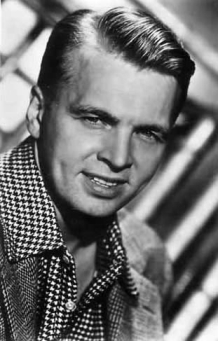
Johnny heads to Chicago to investigate the death of a man with a $50,000 life insurance policy-from starvation.
Original Air Date: February 6, 1953
Save more and combine hotel and airline fare at http://www.johnnydollarair.com
Cast your vote for the show on podcast alley http://podcastalley.greatdetectives.net
Become one of our friends on Facebook…http://www.facebook.com/radiodetectives
Take the listener survey at http://survey.greatdetectives.net
Click here to download, click here to add this podcast to your Itunes, click here to subscribe to this podcast on Zune, click here to subscribe to this feed using any other feed reader.
Mutual, Podcast, Sherlock Holmes, Sherlock Old Time Radio
EP0559: Sherlock Holmes: The Case Of Sudden Senility
by Yours Truly Johnny Blogger • 0 Comments
Podcast: Play in new window | Download
Subscribe: Apple Podcasts | Spotify | Amazon Music | iHeartRadio | Email | TuneIn | RSS
Sherlock Holmes investigates the case of a five year old horse that died of senility.
Original Air Date: January 11, 1948
Take our listener survey…http://survey.greatdetectives.net
Become one of our friends on Facebook… http://www.facebook.com/radiodetectives
Vote for the show on Podcast Alley…http://podcastalley.greatdetectives.net
Call 208-991-4783 to leave a voicemail.
Click here to download, click here to add this podcast to your Itunes, click here to subscribe to this podcast on Zune, click here to subscribe to this feed using any other feed reader.
Share this:
- Click to share on Facebook (Opens in new window)
- Click to share on Twitter (Opens in new window)
- Click to share on Pinterest (Opens in new window)
- Click to share on LinkedIn (Opens in new window)
- Click to share on Reddit (Opens in new window)
- Click to share on Tumblr (Opens in new window)
- Click to email a link to a friend (Opens in new window)
- Click to print (Opens in new window)




